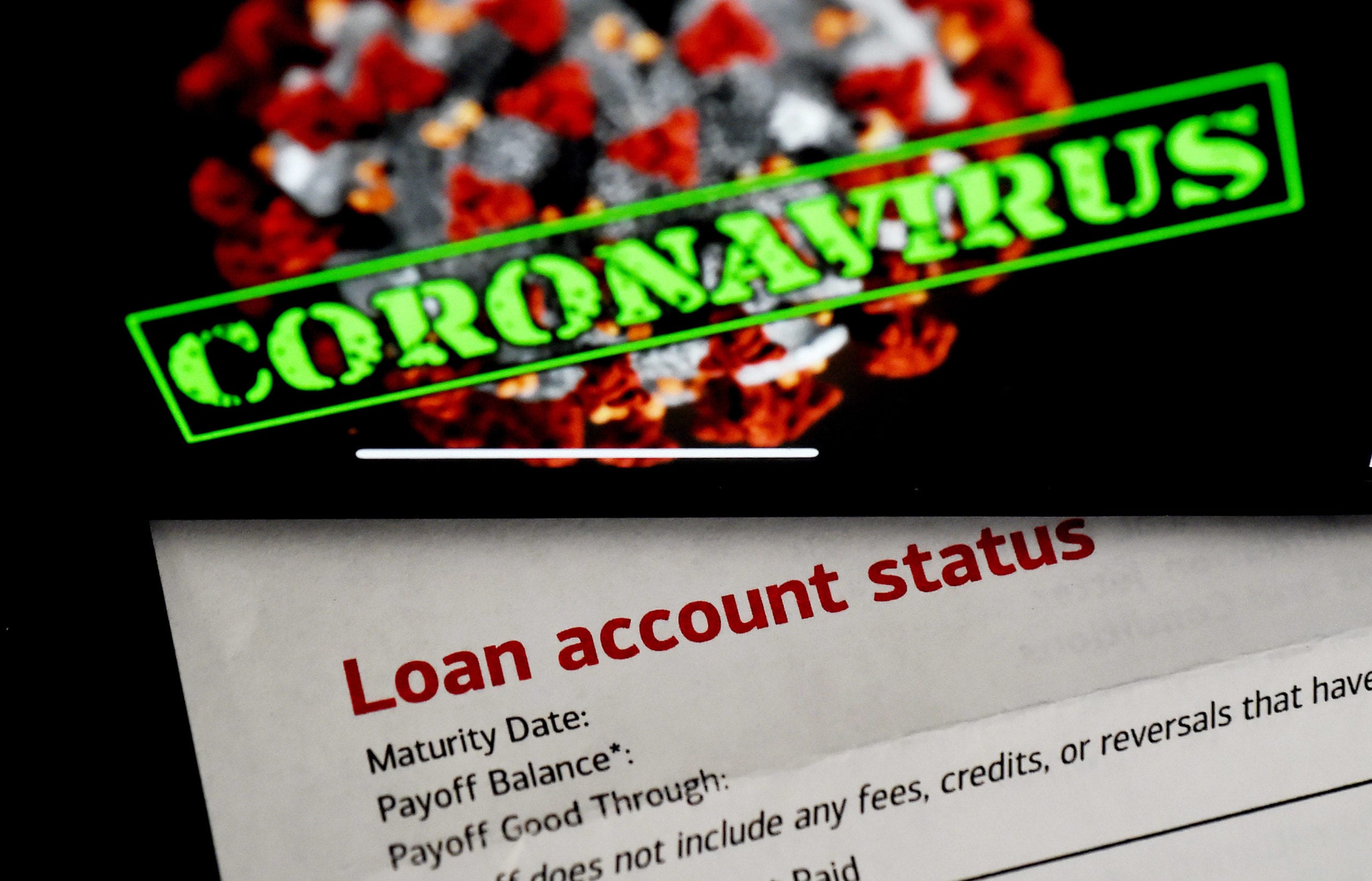[ad_1]
In this photo illustration, a loan statement account status is displayed next a iPhone screen behind reading “coronavirus” on April 16, 2020, in Arlington, Virginia.
Olivier Douliery | Getty Images
As job losses from the Covid-19 pandemic mount, more and more borrowers are delaying their monthly mortgage payments and taking advantage of the government’s bailout program.
The numbers have been swelling at the rate of about half a million a week.
As of April 30, more than 3.8 million homeowners were in forbearance plans, representing 7.3% of all active mortgages, according to Black Knight, a mortgage data and analytics firm. Together, they account for $841 billion in unpaid principal and make up 6.1% of all GSE-backed loans (Fannie Mae and Freddie Mac) and 10.5% of all FHA/VA loans.
The government’s program, part of the CARES Act, which President Donald Trump signed in late March, allows borrowers to delay up to a year’s worth of payments. Those payments must be made up later through either repayment plans or mortgage modifications. Government-backed loans make up about three quarters of the current mortgage market, but for borrowers without those loans, most banks and private lenders are also offering forbearance programs.
While borrowers can delay their payments, servicers of those loans in government-backed securities are still required to advance principal and interest payments to bondholders each month. At the current level of missed payments, servicers would need to advance a total $3 billion per month on these forbearances. For portfolio-held or privately securitized home loans (and about 6.7% of these are in forbearance), they would have to advance $1.5 billion.
Ginnie Mae, which is behind FHA/VA loans, there is a pass through assistance program for servicers. For Fannie Mae and Freddie Mac loans, their regulator, the FHFA, recently announced that servicers would be on the hook for a maximum four months. Given still-rising numbers of forbearances, servicers of GSE-backed loans would still have to make nearly $8 billion in payments.
While larger servicers and big banks have indicated that they can stomach the losses. Mr. Cooper, one of the nation’s larger non-bank servicers, reported a $171 million net loss in its first quarter earnings release Thursday, due to a mark-to-market loss in the value of its servicing portfolio.
“2020 will be a much different year than the one we planned for, but we’ve executed our contingency plans and positioned our balance sheet and bank facilities appropriately; as a result we expect our business to continue to produce excellent results throughout the year,” said Chris Marshall, Mr. Cooper’s vice chairman and CFO, said in a release.
Mr. Cooper serviced $629 billion in home loans as of March 31, according to the company report.
“I am very proud of how all our team members rose to the challenge, helping over 194,000 customers initiate pandemic forbearance plans, while at the same time generating very strong operating results for the company,” said CEO Jay Bray.
Smaller servicers, however, are not feeling quite so confident, and the rally cry in the industry continues for more relief from the Federal Reserve for the industry.
















